
Cyprès de Lawson ''Ellwoodii' (Chamaecyparis Lawsoniana) Pépinières Naudet
Highly decorative, Chamaecyparis lawsoniana 'Ellwoodii' (Lawson Cypress) is an upright, evergreen shrub of dense columnar habit with short sprays of soft feathery, silver-blue foliage, turning steel-blue in winter. Slow-growing, 1-6 in. (2.5-15 cm) per year. Very versatile, it is a popular choice in a number of gardens.

Chamaecyparis Lawsoniana "Ellwoodii" (Faux cyprès de Lawson) Sandrine Fleurs
'Ellwoodii' is a fairly slow-growing large evergreen shrub of columnar habit, with grey-green to blue-green, semi-juvenile foliage in short soft sprays.. Chamaecyparis lawsoniana 'Ellwoodii' (Lawson's cypress 'Ellwoodii') Select a garden project to check if this is the right plant for the garden conditions. Garden project Update garden.

Cupressus de Lawson Chamaecyparis lawsoniana 'Ellwood's Blue' Cyprès, Feuillage, Rocaille
Chamaecyparis lawsoniana 'Ellwoodii' (Lawson's cypress 'Ellwoodii') Lawson Falsecypress is an evergreen native to the northwestern United States. It has flat, dark blue-green leaves with. French Name: Cyprès de Lawson Arabic Name: . Pronounciation: kam-eh-SIP-uh-riss law-so-nee-AY-nuh Plant Type: Tree Origin: Northwest United States
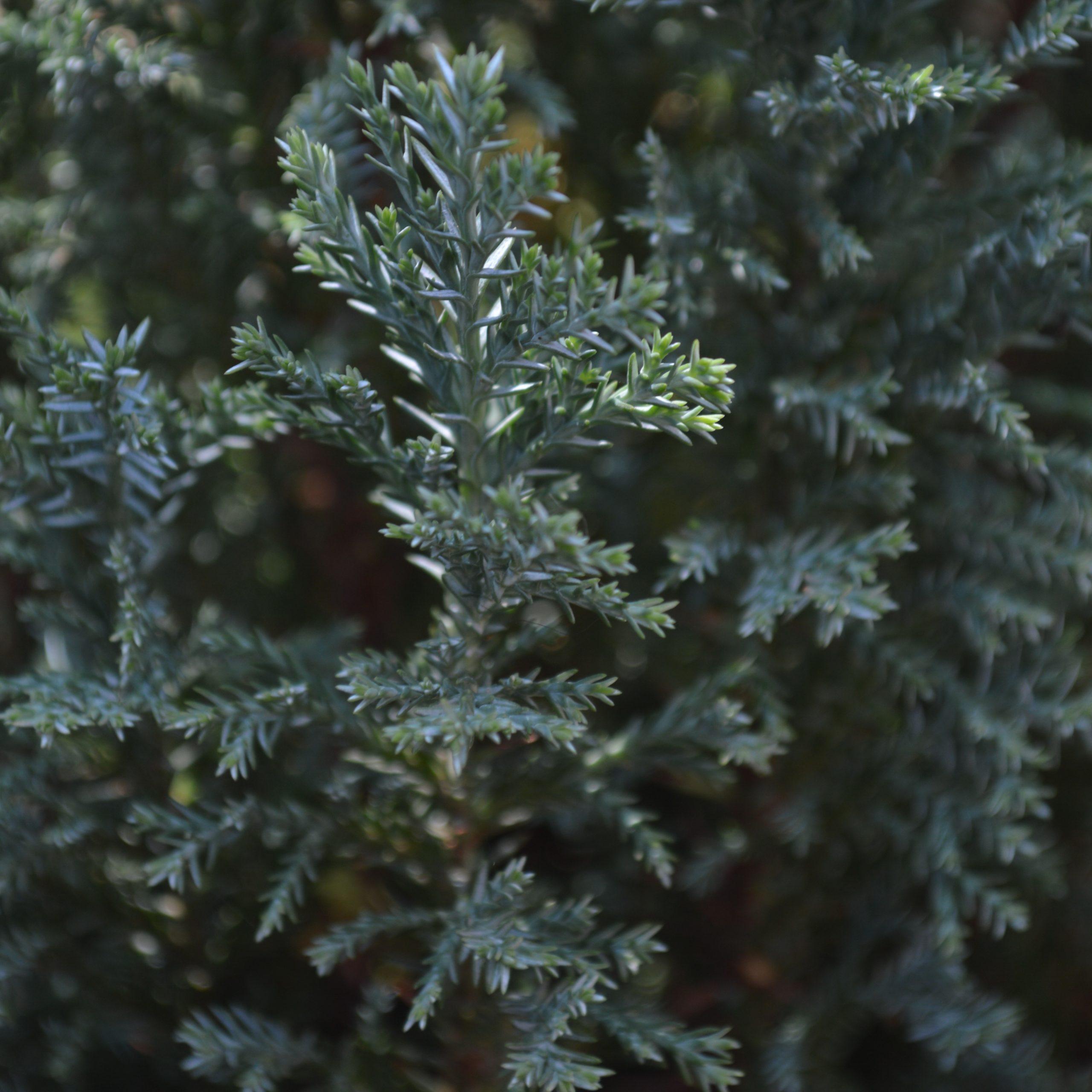
Cyprès de Lawson 'Ellwoodii' Chamaecyparis Gardencenter.ch
Native to the UK. No. Foliage. Evergreen. Habit. Columnar upright. Genus. Chamaecyparis are evergreen trees, usually of narrowly ovoid or columnar outline, with much-branched sprays of small scale-like leaves, and small, globose cones; tiny red male cones are conspicuous in a few cultivars. Name status.
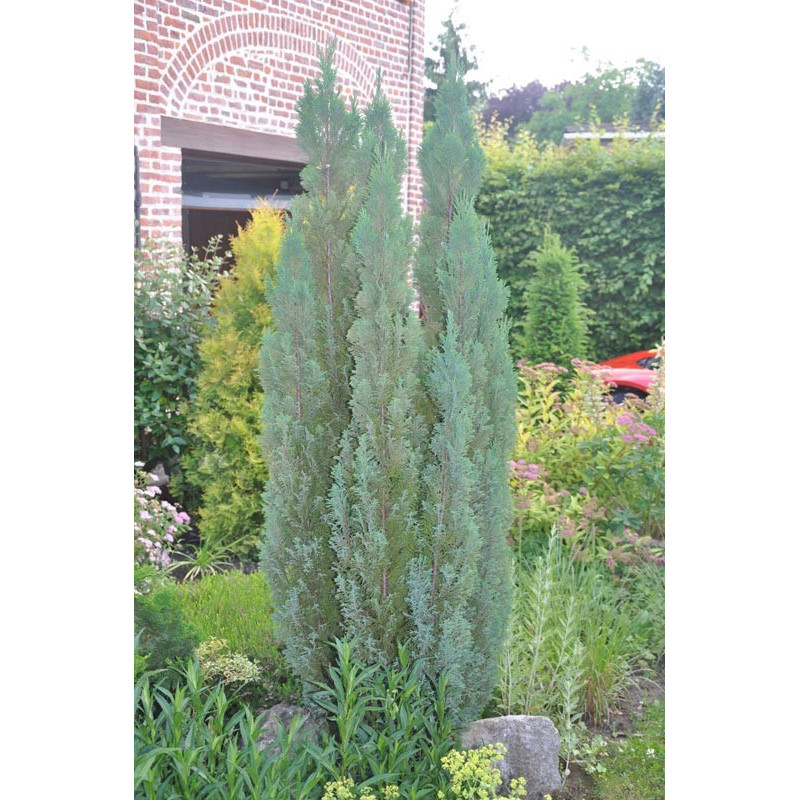
vente de cyprès de lawson ellwoodii (chamaecyparis lawsoniana ellwoodii)
A native of western North America, it is a very popular species since it is highly adaptable. Care Thrives in moist, well-drained, neutral to slightly acidic soil in full sun. Prune dead branches if needed, but do not cut into old wood. Propagation Root semi-ripe cuttings in late summer. Dwarf cultivars should be grafted in late winter or spring.

Cyprès de Lawson lawsoniana Ellwoodii Achat direct au producteur
Chamaecyparis lawsoniana 'Ellwoodii'. Chamaecyparis is a genus of medium-sized to large conifer trees with needle-like juvenile leaves on young seedlings up to a year old, and scale-like adult leaves. The foliage grows in flat sprays. Many species are grown as ornamental trees with a variety of cultivars available with different traits from.
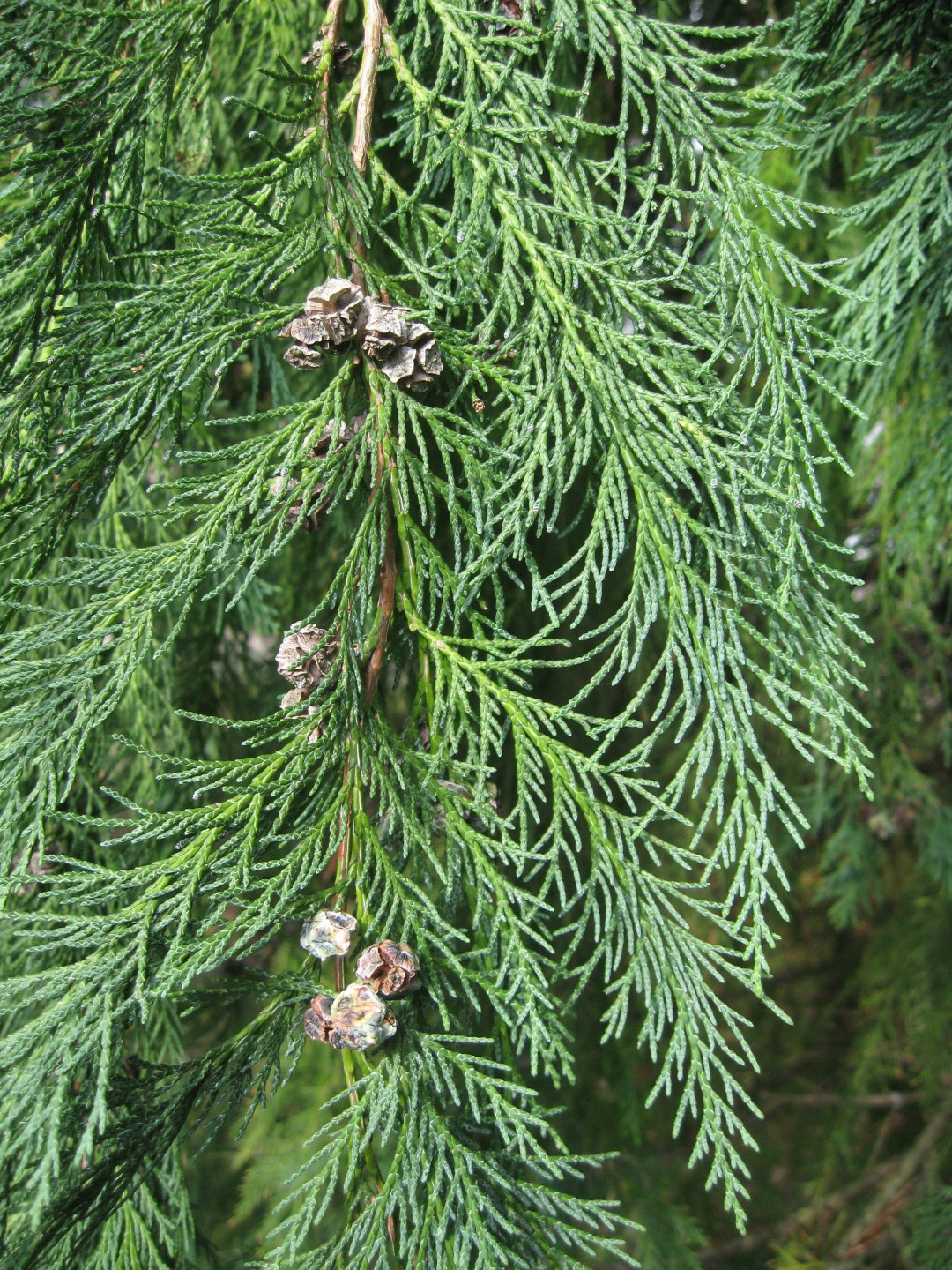
Chamaecyparis lawsoniana Californische cypres Van den Berk Boomkwekerijen
dès 20,90 €. Cyprès de Lawson 'Elwood's Gold'. Chamaecyparis lawsoniana 'Elwood's Gold'. Dressé, avec les mêmes caractéristiques que C. l. 'Elwoodii' avec les feuilles vert-doré et plus compact. Pousse lente. dès 22,90 €. Cyprès de Lawson 'Mini Globus'.
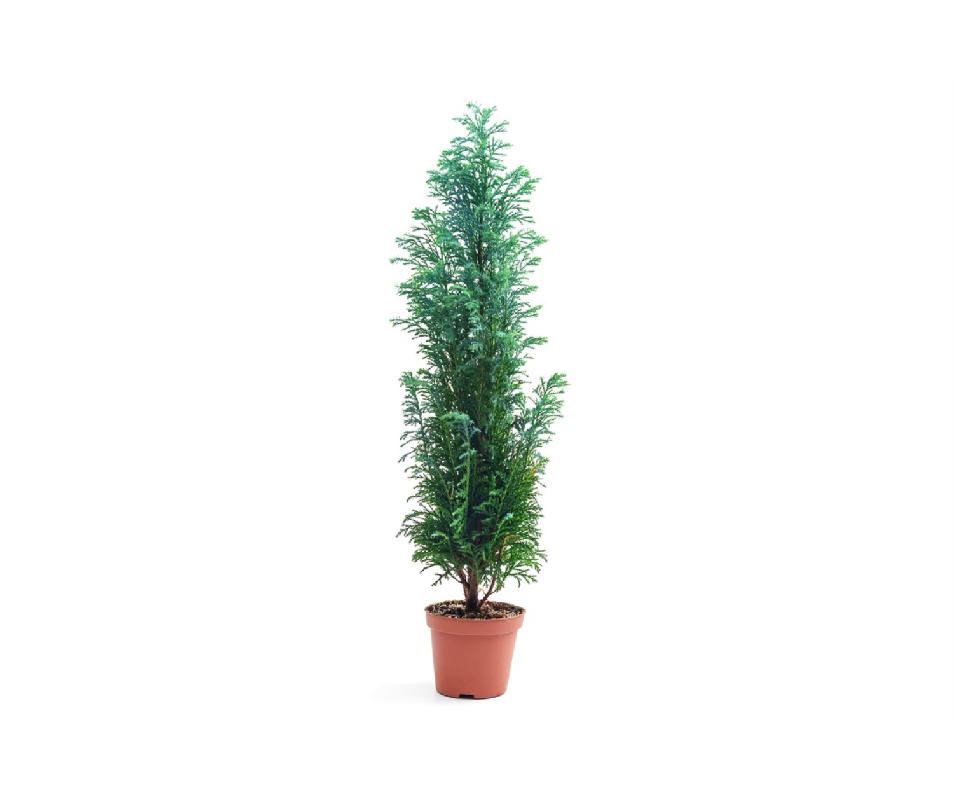
Chamaecyparis lawsoniana (Cyprès de Lawson) ´Ellwoodii´
Description. Ellwood's Pillar Lawson Cypress is a very special miniature specimen plant, growing into a slender column of deep blue-green foliage. It will be just 3 feet tall and only 8 inches wide after ten years, and it naturally develops that very upright form with no trimming or clipping. The foliage has silvery overtones, and it looks.

Faux Cyprès de Lawson 'Ellwoodii' Pot de 2 litres Gamm Vert
Le Chamaecyparis lawsoniana 'Ellwoodii' est l'un des conifères à petit développement les plus populairescolonne dense à croissance modérée, compacte et régulière. Son feuillage est très abondant et se composent de petites feuilles serrées bleu acier en hiver sous l'effet du froid.

CHAMAECYPARIS lawsoniana ELLWOODII (Cyprès de Lawson Ellwoodii) Conditionnement & taille En pot
Characteristics Cultivar: Ellwoodii Family: Cupressaceae Size: Height: 6 ft. to 10 ft. Width: 2.08 ft. to 3 ft. Plant Category: landscape, perennials, trees, Plant Characteristics: round, seed start, Foliage Characteristics: evergreen, Flower Characteristics: Flower Color: Tolerances: deer, rabbits, seashore, Requirements

CHAMAECYPARIS lawsoniana ELLWOODII (Cyprès de Lawson Ellwoodii) Conditionnement & taille En pot
Scientific name: Chamaecyparis lawsoniana. Family: Cupressaceae. Origin: non-native. Lawson cypress is an evergreen, narrowly conical tree that can reach up to 45m high. The trunk often forks. The bark is cracked into vertical plates and the twigs are a dark bluish-grey. Look out for: the leaf scales, on flattened shoots which are fern-like and.

Cyprès de Lawson lawsoniana Pottenii
6-15 feet. Plant Spread: 4-5 feet. Leaves: Unusual foliage color Evergreen Fragrant Needled Other: Soft, feathery blue-green, maturing to steel blue-gray in fall. Fruit: Showy Other: 1/4 to 3/8 inch bluish cones open to red, or reddish-brown. Uses: Windbreak or Hedge Provides winter interest.
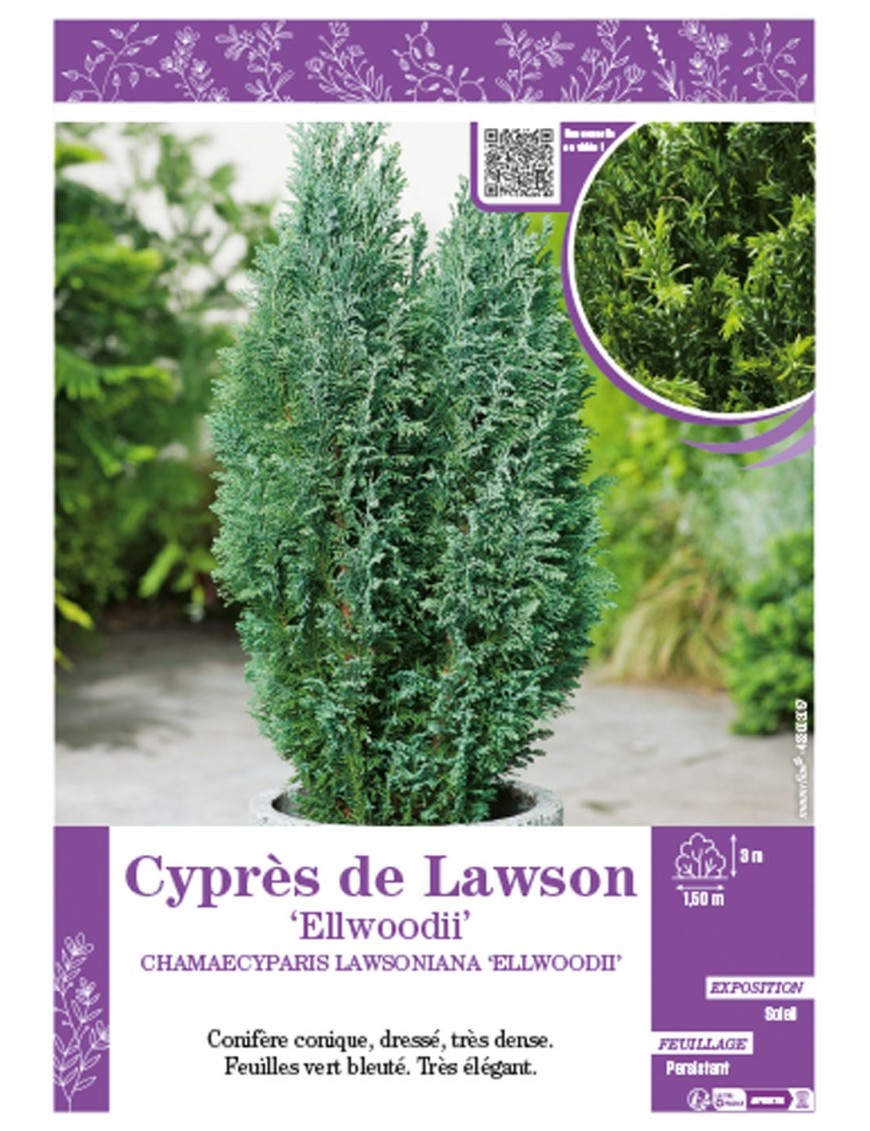
CHAMAECYPARIS LAWSONIANA ELLWOODII voir Cyprès de Lawson
Yes. Chamaecyparis lawsoniana ellwoodii indoor care: Light with air ventilated, clean from dust apparently the plant doesn't like long time with dust on the leaves. Growing is also possible in a planter /flowerpot / containers: Yes, When growing in containers need to keep the plants small, start with pot that will be potted in 20% more than.

Faux Cyprès de Lawson 'Ellwoodii' C3L Gamm vert
From Wikipedia, the free encyclopedia Chamaecyparis lawsoniana, known as Port Orford cedar [2] Lawson cypress [3] in the genus Chamaecyparis Cupressaceae. It is northwestern California, and grows from sea level up to 4,900 feet (1,500 m) in the valleys of the Klamath Mountains, often along streams.

Cyprès de Lawson lawsoniana Ellwoodii
Hardiness: It is a hardy plant that grows best in the USDA Zones 6 - 8. Insects and Diseases: Aphids, Juniper scale, Shoot-boring moths. Propagation: By seeds, cuttings, and grafting. Buy Lawson Cypress Bonsai (12 years old) - $75.00. Buy Lawson Cypress Bonsai (21 years old) - $150.00.

Chamaecyparis lawsoniana Ellwoodii ( Scheinzypresse )
The biggest troublemaker for Lawson cypress, and the pathogen that is invariably fatal to it, is P. lateralis. Cypress root rot was first recorded on planting stock of Lawson cypress in Seattle in 1923. The pathogen was identified and named in 1943 and by 1952, Phytophthora lateralis was found in natural forest stands, where it spread rapidly.